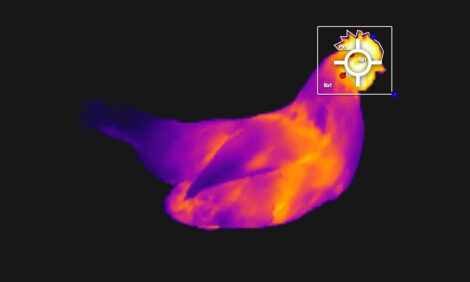



Effects of Maternal Dietary Lysine Intake on Offspring Performance
Feeding broiler breeder hens has a significant effect on the performance of their offspring, according to new research from South Africa.In a paper in Journal of Applied Poultry Research, M. Ciacciariello and N.C. Tyler of the University of KwaZulu-Natal in South Africa explain that the crude protein and amino acid requirements for broiler breeder hens have historically been determined by assessing the response of these birds in terms of egg production.
However, they say, based on increasing evidence on the effects of maternal nutrient intake on offspring performance, this should be revised. In addition, the nutrition management of broiler breeder hens during lay is controversial, and managers and nutritionists resort to the manipulation of feed allocation to improve egg production in these flocks.
In their study, they fed broiler breeder hens diets differing in digestible lysine concentration from 26 to 60 weeks of age.
Fertile eggs were collected at 38, 48 and 60 weeks and incubated. Broilers hatched were reared in commercial conditions and their performance was measured to 21 days of age.
Based on the results of their study, Ciacciariello and Tyler conclude that the feeding of the hens has a significant effect on offspring performance, and that this should be considered when maternal requirements are investigated.
Furthermore, they demonstrated the effects of maternal nutrient intake manipulation on the performance of broilers hatched from hens at different stages of the productive cycle.
Reference
Ciacciariello M. and N.C. Tyler. 2013. The effects of maternal dietary lysine intake on offspring performance to 21 days of age. J. Appl. Poult. Res. 22(2):238-244. doi: 10.3382/japr.2012-00625
July 2013








